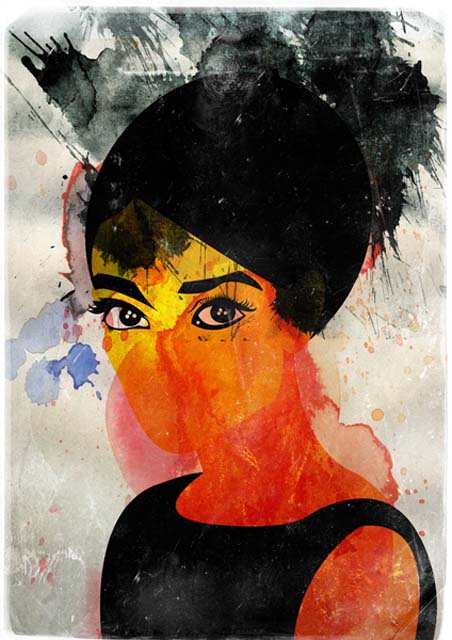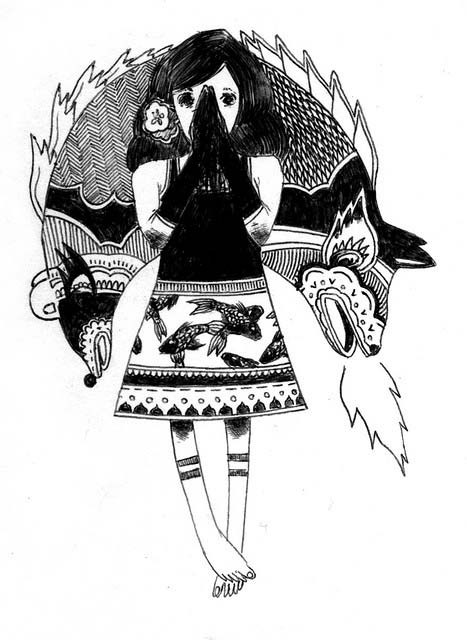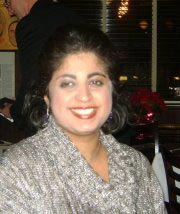
Single Desi ponders: Desi or of Indian Origin?
So what am I not supposed to say what I’m saying
Are you offended by the message I’m bringing
Call me whatever cos your words don’t mean a thing
Guess you ain’t even man enough to handle what I’m saying.
-“Can’t hold us down” by Christina Aguilera
Hmm….Desi…Evolution….Cycles of immigration….Where are we going?….Where were we to begin with? You tell me.
Anyone that knows the desi culture knows that it is primarily male dominated…men control the household, make the decisions, and decide on the direction of the family. Does that formula still apply to a woman in her mid-thirties, who has exited her past and created a whole new personality to gel with her environment?
A woman who has lived independently for a few decades and experienced life in the way she sees fit. She has gone to the bars and clubs, enjoyed the music, watched the latest movies, experienced different fashion statements, and met a variety of people. All in all, she has self healed her wounds, picked herself up and moved on repeatedly.
Was that the way of life for the generation above us? Did our parents get to work a number of jobs with different personalities and adapt accordingly? Or did they have one life that they had to comply with because that was simply the “Indian” way.
Names. Labels. Categories. Identities.
What do we call our new generation? Are we desis or of Indian descent? There is a difference. When I was younger, I would meet people and they would call me “Indian” or a “desi.” Lately, it seems that whoever I meet that is Indian, says “Oh, you are of Indian descent.” It makes me feel far from my cultural heritage. At what age did I turn from being Indian to ‘of Indian Descent’? I do realize that the older I get, the further I feel from my cultural roots.

The Desi Party Experience
I was at the Sikh film festival after-party in New York and when I scanned the room, it was a typical desi scene. All different levels of Indians were mingling among one another; some were doing bhangra on the dance floor. Different desis were talking to their friends and appearing as if they were having a great time. It has been my experience that you can always tell who the Indians are that are born and raised in America and who came from India at some point in their lives. Sorry – but you can! Usually the majority of people at these events have come from India (whether it was in childhood or college) with the minority being born and raised in America.
I realize now that the older I am getting, the more separate I feel from the typical desi and desi structure of an Indian party. My life is taking a different turn at every junction.
It surprises me and takes me further away from my cultural heritage. I see other girls who are of my age that are born and raised in the United States displaying their eagerness to get to know Fresh off the Boat desis. I often wonder what they are referred to as. They are often friends with an FOB and they prefer to hang out together. It is hard for me to understand that, as I feel girls born and raised in America are extremely different and have experienced different life plans than girls born and raised in India.
I mean our life experiences are completely different. Our educational system was completely different. How we were brought up was different. Our communication skills and dating skills become more westernized as we grow. How we were taught to think is different than someone who came from the East.
Don’t you agree?
American Born Desis Vs. Fresh off the Boat
Our attraction patterns are different. Our style of dress is different. I wonder if the American Born Indian at these events are feeling connected to FOB’s or just insecure with who they really are (or who they are becoming as women). What are they referred to as? Are they Indian or of Indian descent? A good number of women in their 20, 30’s and beyond try for fresh off the boat men for dating and matrimonial purposes. However, it doesn’t seem to work out too well for the majority of them.
Sure you have your cases where things seem to pan out However , I was once forewarned at a desi event in my 20’s – never marry a man from India, the thinking style is completely different. There have only been a few documented cases that I have seen where marriages have taken place with an FOB and an American Born Indian. I often wonder how those women fare in their married life. After all, no one talks about things we aren’t supposed to talk about, right?
I mean, a man from India lives differently and expects a woman to live differently. For example, I realized that although my descent is Sikh/Hindu, I don’t go to the Gurudwara or Hindu Temple regularly. If I were to try for a man who labels himself a Sikh or a Hindu (or was bred in a neighborhood where that was the dominant religion), I would have to have lived a Sikh life and my life didn’t evolve that way.
On the other hand, for myself, I would be looking for someone broadminded who understands how important a Maroon 5 concert is. He would also have to be willing to create an equal partnership. How can you display what you haven’t seen and vice versa, in my case as well.
It’s All about Choices…
The older one gets, the more mixed in they become with society, and the more free they live as their directions and neighbors keep changing. Therefore, looking solely at your cultural background for answers is not doable for a variety of girls born and raised in the United States with a broad perspective.
I do realize that everyone born and raised in America is different and has had different opportunities and attraction patterns. Different people came and influenced their life. Judgments will be held off until the person can speak up for themselves and give a realistic perspective on what they get out of their relationships and the kind of life that they live or expect to live.
xoxo
Monica Marwah

Monica Marwah is a 30 something single school psychologist who enjoys living life to the fullest. She is taking her experience and showing others how to believe in themselves and love themselves completely. After years of dating and meeting people, she has come into her own. Spirituality has been a foundation for self improvement for her and she is hoping to encourage people to embark upon a spiritual journey at this age.)
Related Posts:
Desi Dilemma- Pros and cons of the Single Life
The Single Desi Conquering the Inner Bully
Single Desi – Mid 30′s – What Now

2 Comments
Monica,
Your column is great. So keep them coming. I’d recommend embracing being Indian-American…always juxtaposing new and old, modern and traditional, Diwali and Thanksgiving!
And for those of us raised in the US in the 60’s, 70’s, 80’s, there really just aren’t that many of us. According to the Census, there were less than 40000 Indian American children born in the US in the 1970’s, my decade. I probably have the most in common with anyone of them, but sometimes it’s like finding a needle in a haystack. We are all finding that “right” blend of both as we go along. When looking for your partner, find someone else who is also comfortable with the “blending” of cultures. He might be Sikh or Hindu or American, you never know, but it’s all about taking the best of both cultures.
I’ve really enjoyed following the curation of Homespun http://apa.si.edu/indianamerican/. It is documenting the few but similar experiences we’ve all had, and that is fascinating.
When I meet women who are born and raised in India, I am very impressed in how confident they are (homemakers, professors, consultants, whatever profession they are). The world truly is becoming more global and we have much more in common with those raised in India then we did 20-30 years ago.
So part-desi, part-yankee, All Indian-American…a very unique species!
Hi Monica –
Thanks as always for your insightful articles!
I do not think you can make any generalizations or blanket statements anymore in 2012 about Indians from India who migrate here for college/grad school/work or US raised Indians. That could have been said maybe a decade ago. The world has become truly global and more and more of us do not fit a particular mold or pattern. I know I do not.
I have spent enough time with Indians from the Indian diaspora (UK, Africa, Guyana etc), Indians from India who migrated to the US, and US raised Indians like myself. It is refreshing to see the diversity and uniqueness of individuals and their respective experiences and life paths.